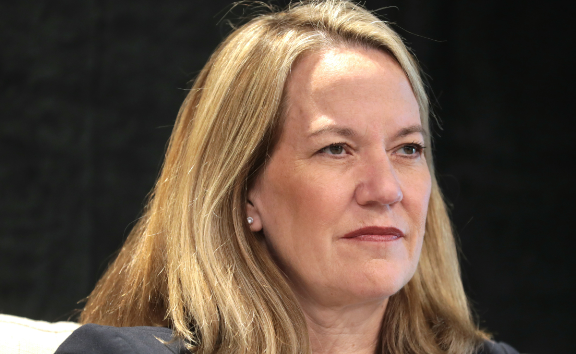
by Staff Reporter | Feb 1, 2026 | Education, News
By Staff Reporter |
Arizona Senate Republicans are refusing to let a parental rights bill die under Gov. Katie Hobbs’ heavily-used veto pen.
Senate Republican leadership revived the legislation through a concurrent resolution, passed out of committee on Wednesday. This legislative pathway allows the slim Republican majority to avoid another inevitable veto from the governor.
SCR 1006 from Senate Majority Leader John Kavanagh (R-LD3) directly challenges the supremacy of transgender-affirming policies and practices within schools.
“Parents have a fundamental right to know what’s happening with their kids at school, and students deserve privacy and safety. No 14-year-old girl should be forced to stand naked in a shower with an 18-year-old man who thinks he’s a girl,” said Kavanagh. “Families shouldn’t be sidelined, and schools shouldn’t be forced into confusion. This reflects what most Arizonans already believe, and it gives them the final say.”
If passed, the resolution would have voters decide whether to require schools to obtain parental permission prior to engaging in transgender-affirming behaviors: referring to a minor student by a name other than the one listed on school records, or referring to a minor student using pronouns that differ from that student’s biological sex.
Voters would also decide whether public schools must provide reasonable accommodations: access to a single-occupancy or employee restroom or changing facility for any individual unwilling to use the facility designated for their biological sex.
Lastly, voters would decide whether individuals could sue public schools for subjecting them to transgender-affirming policies, such as encountering an individual of the opposite sex in a restroom or changing facility designated for their biological sex, or being required to share sleeping quarters with a person of the opposite sex.
Gov. Hobbs vetoed two bills that contained these legislative provisions last year (SB 1002 and SB 1003). In identical letters, Hobbs said the state had more pressing matters than asserting parental rights over transgenderism within schools.
“[These] bill[s] will not increase opportunity, security, or freedom for Arizonans. I encourage the legislature to join with me in prioritizing legislation that will lower costs, protect the border, create jobs, and secure our water future,” said Hobbs.
AZ Free News is your #1 source for Arizona news and politics. You can send us news tips using this link.

by Staff Reporter | Feb 1, 2026 | News
By Staff Reporter |
A committee within the Arizona Senate approved a bill banning fluoride additives in public water systems.
The Senate Committee on Government advanced SB 1019 solely through Republican support. Democratic lawmakers voted against the bill based on the opposition of certain major health organizations.
The bill would prohibit individuals and political subdivisions from adding fluoride or fluoride-containing compounds to public drinking water.
State Sen. Janae Shamp (R-LD29), a registered nurse, sponsored the bill.
Shamp argued that water fluoridation is no longer necessary for public health due to the widespread availability of fluoride in dental products and treatments. Shamp also cited research connecting adverse health effects to ingesting fluoride: neurodevelopmental harms resulting in IQ reduction, weakened bones, arthritis, and thyroid dysfunctions.
“It’s more effective when applied to the teeth rather than ingested,” said Shamp during a committee hearing on Wednesday. “If there is absolutely any possibility that their child could have their neurodevelopmental [development] delay[ed] because they’re ingesting systematically a product that works better topically, I would question anyone who is against stopping [this ban].”
Shamp dismissed opposition to the bill from certain healthcare organizations as the typical resistance to change among institutions. Among those opposed are the Arizona Dental Hygienists Association, Arizona Dental Association, and Arizona Public Health Association.
“As we move forward with the science, we have to make sure we’re staying up to date with evidence-based practice,” said Shamp. “The evidence is showing this is not the way to decrease tooth decay in the population.”
State Sen. David Farnsworth offered his own anecdote on the matter. Farnsworth said he was diagnosed with fluoride sensitivity after suffering headaches while using the first formula for Crest toothpaste to brush his teeth.
Jessica Robertson on behalf of the Arizona Dental Association and American Academy of Pediatric Dentistry said water fluoridation was necessary because certain communities, especially tribal communities, were too poor to afford toothbrushes or toothpaste. Robertson credited water fluoridation for her not coming down with cavities in her youth.
Valerie Brady on behalf of the Arizona Dental Hygienists Association argued against the bill as a “significant risk to public health.” She said that thousands of studies and decades of scientific evidence back the perception that fluoridated water prevents tooth decay. Brady said fluoridated water was significantly impactful to communities with poorer dental hygiene habits or inconsistent dental care.
“It is the ability to provide consistent low-level exposure to fluoride ions in the mouth, helping prevent tooth demineralization and promoting enamel remineralization,” said Brady.
Shamp questioned why those opposed to the bill don’t factor in the variable levels of fluoride people might ingest — or the disparate impacts those variable amounts could cause. The senator claimed this was the opposite of informed consent.
“The fact of the matter is this is a chemical that is added to water and there is absolutely no one out there telling people, ‘Well, you should use this much toothpaste if you drink this much tap water,’” said Shamp. “You don’t know how much someone is ingesting. You don’t know if their only source of water is tap water. You don’t know if they’re using mouthwash three times a day.”
AZ Free News is your #1 source for Arizona news and politics. You can send us news tips using this link.

by Staff Reporter | Jan 31, 2026 | News
By Staff Reporter |
Anti-ICE activists have been vandalizing the ICE Phoenix Field Office with death threats.
The office has become a site for weekly protests against federal law enforcement, frequently crossing over from protests to rioting as activists ignore orders from agents.
“Nuremberg 2 for ICE Nazis,” read one graffiti referencing the trials of Nazi war criminals. “Hang ‘em high.”
“Pigs enter here,” read another.
“Kristi Noem is a dog-killing b*tch,” read another.
At the beginning of this month, the Department of Homeland Security (DHS) reported an 8,000 percent increase in death threats. DHS blamed “sanctuary politicians” for this jump in actual and threatened violence.
DHS also reported assaults on ICE agents had increased by over 1,300 percent and vehicular attacks increased by over 3,200 percent.
Last year, DHS tallied just under 300 assaults and 66 vehicular attacks.
The state’s chief law enforcement leader has been accused of worsening the tensions between federal law enforcement and progressive activists.
Attorney General Kris Mayes made the case for shooting ICE agents in a media interview last week. Mayes claimed Arizona’s “Stand Your Ground” law and ICE agents’ regular habit of wearing masks made it reasonable for an individual to shoot ICE agents.
“It’s kind of a recipe for disaster. Because you have these masked federal officers with very little identification, sometimes no identification, wearing plain clothes and masks,” said Mayes. “[The] law says that if you reasonably believe your life is in danger and you’re in your house or your car or on your property that you could defend yourself with lethal force.”
Mayes followed up her remarks with another video statement stating that she wasn’t advocating for Arizonans to shoot ICE agents, but did call ICE enforcements “increasingly chaotic and dangerous.” Mayes blamed federal law enforcement for the deaths of Renee Good and Alex Pretti. Good and Pretti died while attempting to interfere with immigration enforcement actions.
“Arizonans do not want masked agents entering their homes without warrants,” said Mayes. “It is un-American and it threatens the rights and safety of everyone in our state.”
Days after Mayes made the case for the justified shooting of ICE agents, her police liaison resigned.
Governor Katie Hobbs criticized ICE enforcement as “indiscriminate roundups” of “contributing citizens in their communities.” Deported individuals aren’t citizens.
“It’s not making communities safer,” said Hobbs.
Rather than scale back federal enforcement, DHS has hardened its resolve to ramp up deportations. The Trump administration increased the financial incentive for self-deportations by over $1,000 last week.
Additionally, on Tuesday DHS rolled out a new website to feature the “worst of the worst” of criminal illegal immigrants apprehended by ICE. The searchable database enables users to narrow data based on country of origin and state. Many of those listed on the site were convicted of murder, child cruelty, assault, and battery.
As of this report, the website has over 650 illegal aliens listed that were arrested in Arizona. The website has over 20,200 illegal immigrants on the searchable database.
An enforcement action on Tuesday left one person in critical condition. The Attorney’s Office for the District of Arizona announced that a federal officer was allegedly assaulted, and that the FBI is investigating the incident.
AZ Free News is your #1 source for Arizona news and politics. You can send us news tips using this link.

by Staff Reporter | Jan 31, 2026 | News
By Staff Reporter |
The first statement from the new chairman of the Arizona Republican Party, Sergio Arellano, focused on the “radical” recent actions by Gov. Katie Hobbs and Attorney General Kris Mayes.
Arellano addressed Hobbs’ repudiation of Mayes’ remarks concerning ICE agents and protesters.
“Governor Katie Hobbs is so radical that she just vetoed tax relief for struggling families, but even she finds Kris Mayes too radical,” stated Arellano. “Voters elected President Trump on the promise that he would deport criminal illegal aliens, and he is keeping that promise, including thousands of violent offenders, rapists, and murderers. Our ICE officers are following orders and protecting our communities. We stand by our officers and urge these violent agitators and leaders, like Mayes, who encourage them with reckless rhetoric, to stop putting our men and women in blue in harm’s way.”
Arellano was elected over the weekend despite low party attendance, prolonged delays, and organizational challenges, as AZ Free News reported. Arellano is an Army combat veteran and Republican activist.
Earlier this month the attorney general claimed in an interview with 12News that Arizonans had the right to shoot masked federal law enforcement based on the state’s stand your ground law.
“[I]f you reasonably believe that your life is in danger and you’re in your house or your car or on your property that you can defend yourself with lethal force,” said Mayes.
In the days that followed the airing of her legal defense for would-be shooters, Mayes’ law enforcement liaison resigned. Now, the governor has some criticism for the attorney general.
In an interview with Capitol Media Services on Thursday, Hobbs refused to defend Mayes’ remarks. She said the attorney general’s comments were “inappropriate” and advised her to retract her statement. The governor indicated Mayes’ remarks were endangering law enforcement officers.
“It is the responsibility of every elected official to turn down the temperature and do everything we can to be very careful with our language about ramping up the potential for violence,” said Hobbs. “We are seeing across the county people’s fear increasing and the potential for violence.”
Mayes’ spokesman Richie Taylor responded that Hobbs misunderstood the attorney general, that her positing a defense of lethal force against a masked ICE agent doesn’t equate to making it legal to shoot a cop.
Taylor said Hobbs should be more concerned about the alleged public safety threat posed by President Donald Trump’s mass immigration enforcement efforts.
“The actions of Donald Trump’s federal agents are endangering public safety and putting local and state law enforcement and the public in danger,” said Taylor. “And that is what should concern the governor.”
Following widespread bipartisan flak over her rhetoric, Mayes issued a video defending her remarks as a mischaracterization by “right-wing media.” Mayes said her remarks had more to do with speaking out against alleged ongoing abuses of power and violations of the Constitution.
“Arizonans do not want masked agents entering their homes without warrants. It is un-American and it threatens the rights and safety of everyone in our state,” said Mayes. “We have all witnessed the increasingly chaotic and dangerous activity of ICE agents in cities across the country.”
Republican lawmakers in the state legislature have advanced a resolution urging Mayes to resign over the comments. The Senate passed the resolution on Thursday.
AZ Free News is your #1 source for Arizona news and politics. You can send us news tips using this link.

by Staff Reporter | Jan 30, 2026 | Education, News
By Staff Reporter |
The Arizona’s Empowerment Scholarship Account (ESA) program grew to over 100,000 enrollments this week.
As of Monday, the Arizona Department of Education (AZED) reported the ESA program had nearly 100,500 enrollees.
Superintendent Tom Horne said in a statement on Tuesday that the milestone represented “a remarkable endorsement” of school choice by Arizona parents. Horne offered an example of a typical scenario in which a family enrolls in the ESA program.
“Consider a family with three children. Two of the children are doing just fine in district schools. The third child’s needs are not being met. Now, the parents can find another school that meets the child’s needs,” said Horne. “I do not understand how anyone can say parents do not have a right to find a school that meets their child’s needs, unless people are so immersed in ideology that they lose sight of what is best for students.”
When Horne took office in 2023, the ESA program had about 11,000 students. That represents an average annual growth of nearly 30,000 students in the program for the past three years.
The latest enrollment data from AZED (2024-2025) reported nearly 1.1 million students across K-12. That’s about nine percent of the total student population.
AZED also reported the recovery of nearly $1.2 million in unallowable expenses through collections, repayments, or legal authority referrals. The program requires parents to document all purchases made, and any impermissible purchases result in a freeze on their accounts.
Parents do have recourse if they believe a mistake was made in the rejection of their expenditures. Horne reminded parents in his Tuesday statement that they are free to appeal rulings; to date, AZED has not lost an appeal.
“Some people have questioned my authority to insist that expenditures only be for valid educational purposes. I am not the final word. Parents have a right to appeal denial to an administrative law judge,” said Horne. “There have been 20 such appeals, and my authority to deny the expenditure was involved in everyone. We have 20 wins and zero losses. Administrative law judges have held unanimously that I do have that authority.”
Horne’s fellow executive branch leaders have expressed dissatisfaction with the continued growth of the ESA program.
In her State of the State Address earlier this month, Gov. Katie Hobbs accused the program of widespread waste, fraud, and abuse — a money pit funding many things other than “true educational purposes.” Hobbs recently proposed an income cap on ESA enrollment: anyone making over $250,000 a year would not qualify.
Horne’s response was a defense of the ESA program as a clear desire of Arizona voters. The ESA program was universalized through legislation passed in 2022 under Hobbs’ Republican predecessor, Gov. Doug Ducey.
“Arizona parents have made it clear they believe in being able to choose the best education for their children, whether districts, charters or Empowerment Scholarship Accounts,” said Horne. “By their loud display today, Democrats proved they want to take that power away from mothers and fathers who know their children’s needs best and return education to a government monopoly that parents do not want.”
AZ Free News is your #1 source for Arizona news and politics. You can send us news tips using this link.





